EQUINE COMPETITION HEALTH & BIOSECURITY REQUIREMENTS
To ensure the safety of all equine exhibitors showing at Chagrin Valley Farms, CVF management has put in place the following health and safety protocols for horses at all shows and competitions (rated shows, schooling shows, dressage, mini-trials, etc.) beginning in March 2024. Great biosecurity is a team effort and begins at home; please do not ship horses to CVF who have elevated temperatures or known issues.
Before Arrival
- To facilitate the inspection process by CVF personnel, all paperwork including negative Coggins, vaccine records listed below, and signed Trainer/Owner Declaration, must be emailed in advance or presented to the Horse Show Office immediately upon arrival prior to unloading and must be available throughout your stay. If an arriving horse does not have the required paperwork upon arrival, the horse will not be permitted to unload on the facility grounds until it is provided.
- It is highly recommended that competitors track and record temperatures for two days prior to arrival using this USEF form in order to avoid shipping horses with possible health issues.
Trainer/Owner Health Declaration– Signed by an owner/trainer confirming that the horse has not experienced a fever exceeding 101.5 degrees or any disease in the 72 hours leading up to its arrival. Additionally, the horse must not have been exposed to or treated for an unexplained fever in the past 28 days and should have tested negative for any disease at least 30 days prior to arrival. If the horse has tested positive within the last six months for any infectious diseases, this information should also be disclosed. See form.
Negative Coggins (within twelve months) – Proof of a current negative Coggins test within 12 months.
Vaccinations (within six months) – It is required all horses be vaccinated for Equine-EHV I/IV (either modified live or killed vaccine) and Equine Influenza no sooner than seven days prior to and no later than 180 days (six months) prior to entering the show grounds. Most EHV-1 vaccines are only considered effective for 180 days. Please check with your veterinarian about which vaccine is right for your horse. We strongly recommend vaccinations against WNV, EEE, WEE, Tetanus and Rabies. If you vaccinate your own horses, receipts with lot numbers must be attached to your vaccination record as proof of purchase. Use this form to submit your vaccination records.
Statement of Health or Health Certificate (30 days) – Required for all horses arriving from outside the state of Ohio. The statement of health must be dated within 30 days of check in, affirming that the horses entering the facility have not had an elevated temperature, been to a facility where there has been a positive or suspected positive case of EHV, been in a close proximity to an ill horse and receive routine vet care and vaccinations. The Statement of Health must be signed by a licensed veterinarian and on the vet’s letterhead.
*Please note, a health certificate will be accepted to meet the health statement requirement, if it is dated within 30 days of check-in.
We prefer health papers emailed before arrival, but visitors/competitors may also present health papers to the show office before horses are unloaded from the trailer. Send forms and health paperwork to [email protected]
**Haul-In/Trailer-In Horses: Horses that are not stabling in CVF stalls, and are kept in a trailer during the competition are still required to comply with all requirements listed above in order to participate in CVF shows.
**If you plan to arrive after 8pm or before 7am, you must inform the show office of your estimated arrival time and send your required documents ahead of time.**
After Arrival
Monitoring Horse Health while on the Grounds
Twice daily temperature checks, morning and evening (roughly 10-12 hours apart), are highly recommended during each horse’s stay at CVF. The first temperature should be taken and recorded immediately upon arrival. If temperature may be elevated from trailering, it must be re-taken again within one hour and monitored. Until a normal temperature is reached, the horse is not allowed to leave its stall.
CVF reserves the right to make 2x day temperature checks mandatory when there is an increased risk to the equine population due to active cases within the region.
It is recommended that temperatures be taken prior to any exercise to minimize the spread of any disease through forced exhalation with greater exertion.
Additionally, all horses should be observed for abnormal clinical signs which may be indicative of a potential equine infectious disease.
No Use of CVF Pastures or All-Weather Turnouts
Visiting horses are NOT allowed to use CVF pastures or turn-outs while on the property. Violators will be fined $250.00. Repeat violators will not be allowed to return for future shows.
Reporting to Show Management
Any temperature over 101.5F degrees or abnormal clinical signs must be reported immediately to the Show Veterinarian and Horse Show Manager immediately. The Show Veterinarian will examine the horse to determine if isolation or testing of the horse for a potential equine infectious disease is necessary. CVF reserves the right to test any horse that has a fever and/or clinical signs for an infectious disease at owner expense.
CVF has a 3-stall quarantine barn to house horses during assessment and in case horses must be retained on the property for quarantine before returning to their home facility. When the show veterinarian deems that a horse must be quarantined, it must be housed in this facility or removed from the property immmediately (if allowed).
Show Management Notification to Competitors
When a risk case is identified, show competitors will be notified through a combination of show announcements, SMS messages, and direct messaging with competitors that a case is being investigated. Updates will be sent as soon as they are available.
Practice and communicate the following biosecurity best practices to your barn staff.
- Take temperatures of all horses twice daily and maintain a log for each horse.
- Limit nose-to-nose contact between horses.
- Handlers and riders should maintain distances between horses at all times.
- Avoid non-essential people touching horses.
- Practice good hygiene. Handlers should wash hands in-between handling horses and maintain proper biosecurity protocols in the barns and rings.
- Avoid sharing equipment unless it is thoroughly cleaned and disinfected between uses.
- Braiders/Vets/Farriers/Equine Therapists must produce a list to the Show Office of client horses with their appropriate stall number.
- Braiders/Vets/Farriers/ Equine Therapists should clean and disinfect their hands, equipment, clothing, and shoes between horses.
Post Show/Competition
- If your horse begins to display a fever or clinical signs of a contagious nature within 14 days of departing, please notify CVF immediately for tracking purposes.
- CVF will disinfect show stalls with appropriate disinfectant prior to the start of the next show/competition.
We look forward to a great show season and hope that all exhibitors do their part on following these rules to help ensure the safety of all horses.
Please continue to check this page for any additional recommendations or requirements.
For questions related to these policies, please call us at 440-543-7233 outside show times and at 440-543-7222 during shows.

